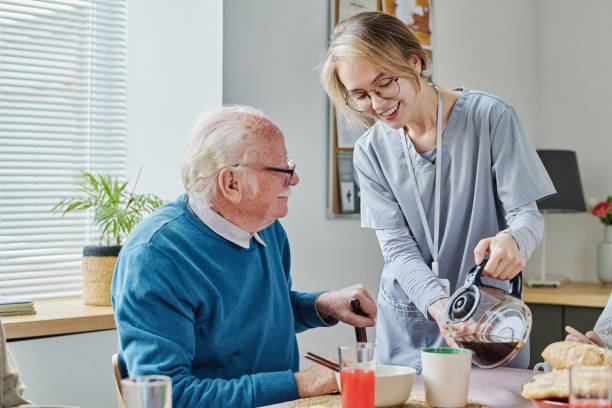In an era where the population of older adults is rapidly increasing, the demand for home health care services has never been more crucial. These services not only play a pivotal role in enhancing the quality of life for seniors but also offer them the independence and comfort of living in their own homes. With a focus on personalized care, home health care supports a range of needs, from medical to daily living assistance, ensuring that seniors receive the compassionate and competent care they deserve.
This shift towards in-home care represents a significant advancement in how we support our aging population, promoting their well-being, dignity, and happiness.
Contents
The Key Components of Effective Home Health Care
Home health care encompasses a variety of services that cater to the elderly, aiming to provide them with a comprehensive care experience. These services not only address the medical needs but also the emotional, social, and psychological aspects, ensuring a holistic approach to elder care. Here, we explore the key components that contribute to the effectiveness of home healthcare services.
Personalized Care Plans
Personalized care plans are foundational to home health care, as they ensure that each senior’s unique needs are met. These plans are developed in collaboration with healthcare professionals, seniors, and their family members, allowing for a tailored approach that respects the individual’s preferences and requirements.
Skilled Nursing Services
Skilled nursing services at home can include wound care, medication management, and monitoring of vital signs, among other critical medical services. These services are provided by licensed nurses who are trained to offer compassionate care while also addressing the complex medical needs of seniors.
Physical and Occupational Therapy
Rehabilitation services such as physical and occupational therapy play a crucial role in home health care. These therapies are designed to help seniors regain or improve their physical abilities, ultimately enhancing their independence and quality of life.
Social and Emotional Support

The importance of social and emotional support cannot be overstated. Home health care providers often include counseling and companionship services to address the emotional well-being of the elderly. This aspect of care helps combat feelings of loneliness and isolation, promoting a sense of belonging and happiness.
Assistance with Daily Living Activities
Many seniors require assistance with daily living activities such as bathing, dressing, and meal preparation. Home health care aides are trained to provide this type of support with respect and dignity, ensuring seniors can maintain their daily routines and independence as much as possible.
By focusing on these key components, home health care services play a vital role in enhancing the lives of seniors, offering them a dignified, independent, and comfortable lifestyle within the familiarity of their own homes.
The Role of Technology in Modernizing Home Health Care
Technology has become a game-changer in delivering efficient and effective home healthcare services in the rapidly evolving healthcare landscape. With innovations aimed at enhancing communication, monitoring health remotely, and ensuring timely medical interventions, technology bridges the gap between traditional home care methods and futuristic healthcare solutions.
By leveraging the power of advanced tools and software, home health care is set to redefine the standards of elder care, ensuring safety, independence, and improved quality of life for seniors.
Remote Health Monitoring
Remote health monitoring systems represent a core technological advancement in home health care. These systems enable healthcare providers to track patients’ vital signs and health status in real-time, ensuring immediate medical attention when necessary.
Telehealth Services
Telehealth services have proven indispensable in modern home health care. They provide seniors with access to healthcare professionals from the comfort of their homes. This system facilitates virtual consultations, follow-ups, and therapy sessions, making healthcare more accessible and convenient.
Medication Management Tools
Innovative medication management tools, including automated pill dispensers and medication tracking apps, have significantly improved the accuracy and efficiency of medication administration, reducing the risk of errors and enhancing patient safety.
Personal Emergency Response Systems (PERS)
Personal Emergency Response Systems (PERS) offer seniors a lifeline in the event of an emergency. These wearable devices can detect falls and allow users to summon help with the press of a button, providing peace of mind for both seniors and their caregivers.
By integrating these technological solutions, home healthcare services cannot only offer more personalized and efficient care but also empower seniors to lead safer, more independent lives.
Conclusion
Home healthcare services have made great strides in meeting the diverse needs of our aging population. With a focus on personalized care and the utilization of advanced technology, these services are well-equipped to promote seniors’ well-being and independence while ensuring their medical needs are addressed effectively. As we continue to value and prioritize elder care, home health care will undoubtedly play an increasingly pivotal role in creating a brighter and more comfortable future for our seniors.

